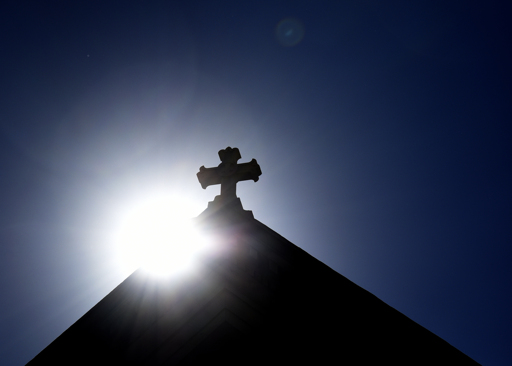The Catholic Church has issued a warning to its clergy in Washington state: Any priest who complies with a new law requiring the reporting of child abuse confessions to authorities will be excommunicated.
https://www.newsweek.com/catholic-church-excommunicate-priests-following-new-us-state-law-2069039



Confession is a sacrament of the Catholic Church - pretty much the definition of “religion” in Europe for two thousand years. It’s clearly something the first amendment is intended to protect and this law is well over the line into unconstitutional.
You know what, you’re right. We should definitely not protect children from a lifetime of trauma because of tradition. What was I thinking?
And this is clearly not something the first amendment is intended to protect. The first amendment is about government punishment for private speech and allowing religion to be practiced. This doesn’t stop the religion from being practiced, it just says priests have a choice between a temporary time out from the church and a temporary time out from society if they choose to protect child abusers. And even if it were about this, we ALREADY have laws compelling people to report crimes. You think because it is a priest they get a special pass that lawyers, therapists, and doctors don’t get?
That catholics should practice confession is a religious belief. But the confidentiality part is from canon law - i.e. in terminology of most other organisations, it is a policy. It is a long-standing policy to punish priests for breaking it, dating back to at least the 12th century, but nonetheless the confidentiality is only a policy within a religious organisation, and not a religious belief.
Many organisations punish individuals who break their policy. But if an organisation has a policy, and insist that it be followed even when following it is contrary to the law, and would do immense harm to vulnerable individuals, then I think it is fair to call that organisation evil - and to hold them culpable for harm resulting from that policy.
Even if the confidentiality itself was a core part of the religious belief itself, religious freedom does not generally extend to violating the rights of others, even if the religion demands it. Engaging in violent jihad, for example, is not a protected right even in places where religious freedom cannot be limited, even if the person adheres to a sect that requires it.
Honestly I agree with you here. Either confessions are protected from being used as evidence or they aren’t there cannot be specific carve outs for this even for child abuse. Its all or nothing here.
So, all. Obviously. Why should there be any protection for admitting your crimes because a special club you’re part of has a tradition of keeping secrets?
Same reason there is protection if you admit crimes to your lawyer and sometimes to your spouse. It’s a matter of privacy. It isn’t just some special club, any faith that establishes a rite similar to confession should be able to use a similar protective mechanism within certain limits to enable discussion about sensitive and possibly criminal issues.
To be fair, the issue isn’t so much the person admitting things being protected by being part of the church, but if a third party not associated with law enforcement can be compelled to say to said law enforcement about the things said to them. Honestly I think I get the arguments on both sides of this one, it’s not great to legally compel people to say things, especially when saying those things is directly in violation of their sense of ethics, and it’s also not great to just not do anything when made aware of something like child abuse. I think that a law like this is unlikely to help much though: if the church caves, then it seems unlikely that people would be willing to admit to these things anymore anyway, at least to priests, and if they don’t, these guys seem to believe that the consequences of following the law are worse than breaking it, and so it seems unlikely to do much more than occasionally send a priest to jail when it can be proven that they were told of something and didn’t report it.
Are you aware of how the mandatory reporting laws came into being? It is absolutely fucked up beyond belief. Anyone who doesn’t report these sorts of crimes has no ethics.
It’s not really true that they have no ethics though, if it was, it’d be a simpler problem, because they’d presumably just care about reducing unpleasant consequences to themselves and as such a legal deterrent should be effective. The issue is that they have different ethics, which are misaligned with everyone else’s and so result in conflict when they stubbornly refuse to do something that everyone else perceives as a no-brainer. It isn’t like the church gets some material gain out of keeping confession secret.
You can run but you can’t hide.